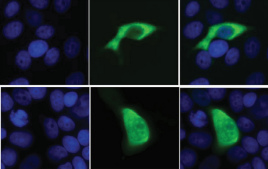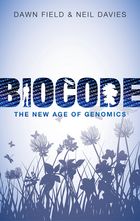Transcript
Professor Dawn Field of the University of Oxford, and Dr Neil Davies, Senior Fellow, Berkeley Institute for Data Science are the authors of Biocode -The New Age of Genomics. In conversation with Craig Barfoot, they take us on a dazzling ride through new fields of scientific discovery.
We visit Moorea where Neil Davies and his colleagues have taken on the massive task of mapping the genome of an entire ecosystem, creating a library of genetic markers and physical identifiers for every species of plant, animal and fungi on the island, the database of which will be publicly available as a resource for ecologists and evolutionary biologists around the world.
They help us view the fast developing science of genomics. The structure of DNA was identified in 1953, and the whole human genome was mapped by 2003. Since then the new field of genomics has mushroomed and is now operating on an industrial scale. Genomes can now be sequenced rapidly and increasingly cheaply. Currently used in crime detection, in paternity suits and to identify susceptibility to medical conditions – the potential for misuse is alarming, but it also opens up unprecedented possibilities.
One of the most fascinating parts of the interview is a discussion about human beings as ecosystems. Sequencing technology has made the invisible world of microbes visible – biodiversity genomics is revealing whole new worlds within us and without. The findings are transformational. Our bodies are home to millions of bacteria – in fact we have more bacteria in us than human cells – these species help us to function as human beings. We have seen microbes as the enemy, and have been fighting them with penicillin since the middle of the last century – but what we now find is that only 200 species of microbes are pathogens out of millions of bacterial species. When we understand this ecosystem better it will revolutionise healthcare. “The genome is the foundation of our bodies, like trees in a forest, but there are lots of other flora and fauna that make up the whole ecosystem of the forest.”
Tags: Biocode, Biodiversity, Genome, Genomics, Humans as ecosytems, Microbes, Moorea



Subscribe with…